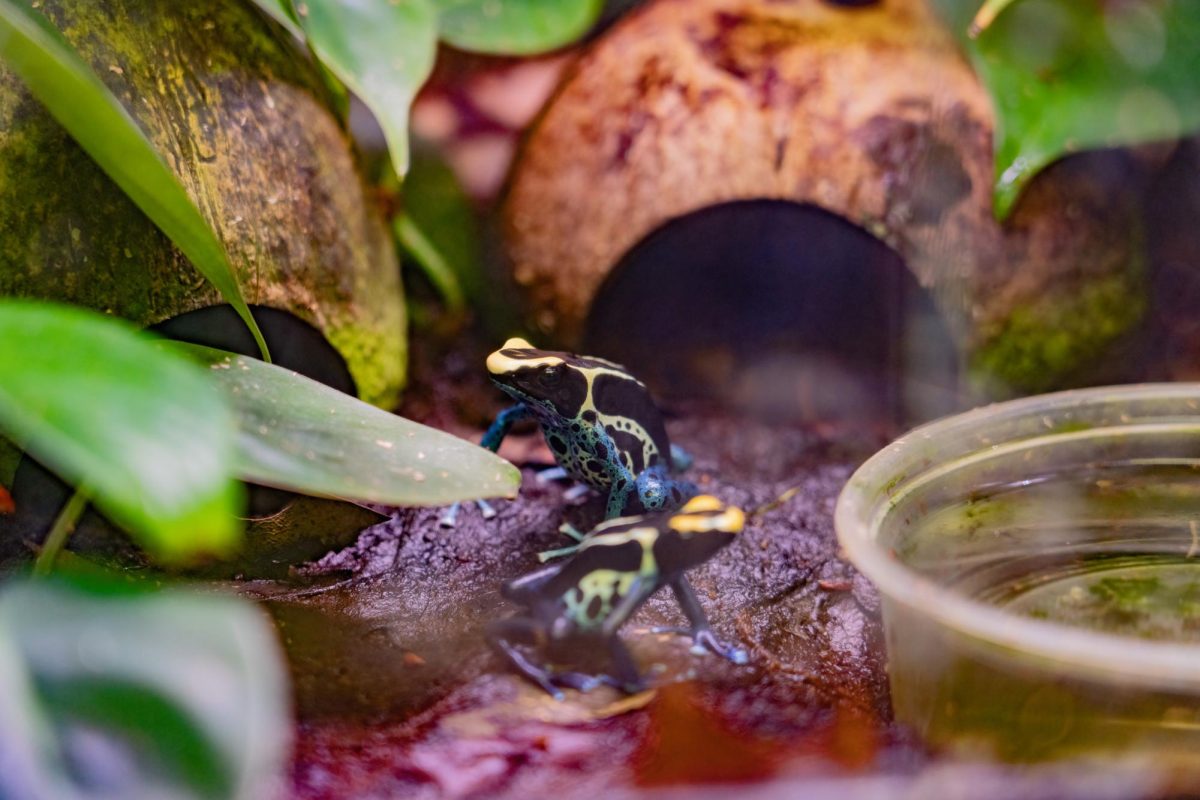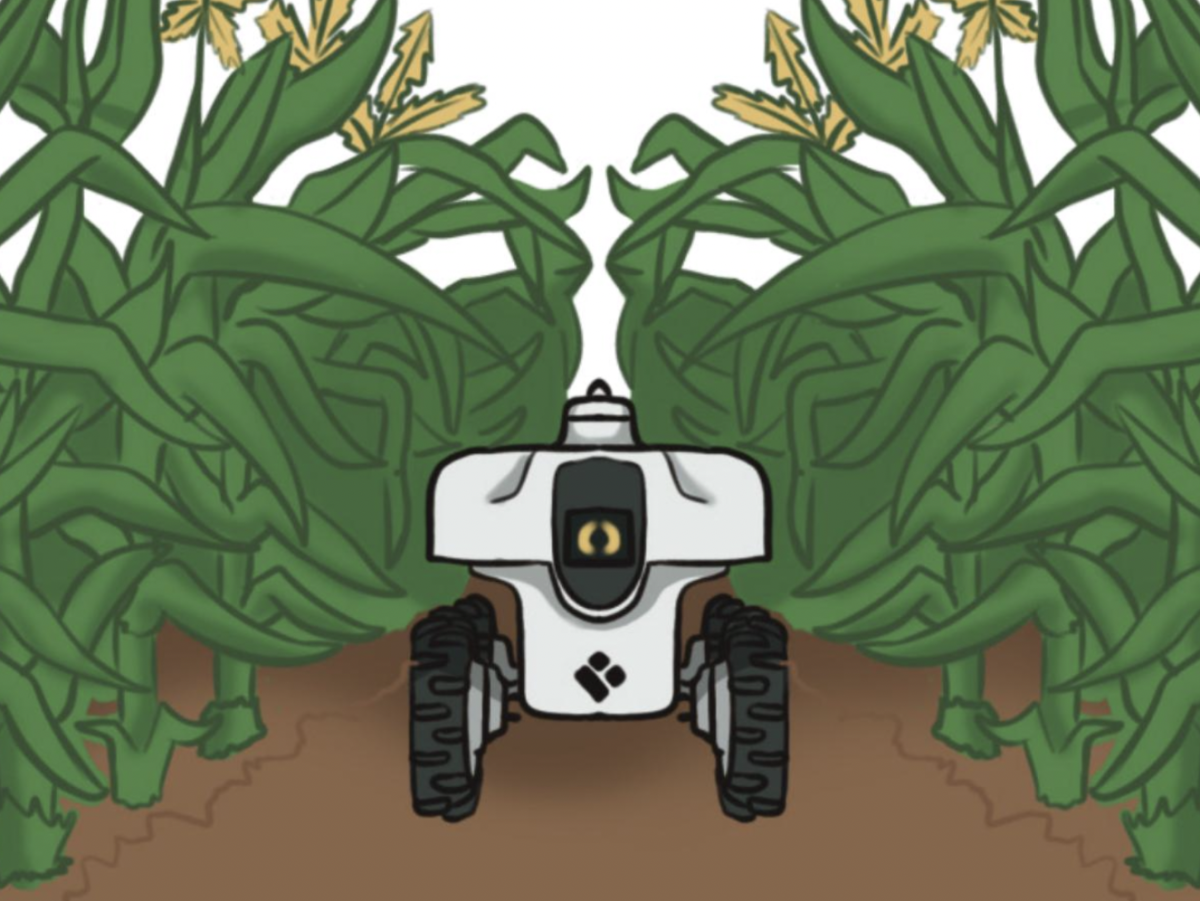Scientists discover new findings every day from parts of the human body, the environment, global changes and more. However, the University’s neuroscience program has a unique area of focus: frogs.
Eva Fischer is one of the faculty members in the Neuroscience Program in the Department of Animal Biology and aids students in the study of integrative approaches to brains, behavior and the evolution of various types of frogs.
Fischer has worked at the University since 2020, and her current research lab has two postdoctoral students, three graduate students and nine undergraduate students.
Her journey in academia began when she received her bachelor’s degree from Cornell University in Ithaca, New York in 2007. She then went on to receive her doctorate from Colorado State University in 2015 as well as two postdoctoral fellows. Her first fellow came from Harvard University in 2017 and her second in 2020 from Stanford University.
Fischer’s accomplishments are numerous, as she has received 14 awards and grants spanning from 2010 to 2020. Some of the most notable include the Hanse-Wissenschaftskolleg Junior Fellow in 2020, finishing as a semi-finalist for the Sammy Kuo Prize in Neuroscience in 2019, the International Society for Neuroethology Young Investigator Award in 2018 and many more.
Get The Daily Illini in your inbox!
Throughout Fischer’s professional career, she has not only attended renowned universities, received many honors and had many of her works published, but she has also conducted field research in countries like Madagascar, Ecuador, French Guiana and more.
Before picking her specialty, she worked as a biology professor in the Middle East, worked as a lab technician and was involved in research regarding animal behavior — specifically focusing on stress and addiction in rats. Fischer said although this research is important, it wasn’t for her.
“Just trying stuff is awesome because I think every experience is valuable,” Fischer said. “Sometimes you do something like me as a lab tech where part of what I learned was, ‘This isn’t the research I want to do, but that’s also really important to know.’”
Even though Fischer did not feel her focus on rats or their reaction to different drugs was the right path for her, the research and lab work from the project segwayed her interest in the cognitive behaviors of animals.
“I’m more interested in the kinds of things animals do in their daily life and why and what that can teach us in correlation to why we act the way we do versus why animals like frogs act the way that they do,” Fischer said. “So, I knew I wanted to do the brain and behavior thing, but in funny critters.”
Fischer wanted to continue conducting research of her own but knew that she ultimately wanted to continue to educate and become a professor.
Currently, Fischer said she is not heavily focused on research of her own but is occupied by teaching at the University and leading the Fischer Lab.
The Fischer Lab is located in Morrill Hall, but the true stars of the lab are located in the ground level of the building where different types of frogs from different parts of the world are kept and observed.
The lab’s overall focus is to understand the biological and cognitive mechanisms of frogs. Specifically, the current focal points of the lab revolve around the principles of social behavioral evolution, plasticity, evolution and correlated trait evolution.
Through her works in field study, research, experience with different animals, education and programs, Fischer and her students have also had numerous of their findings published.
Traveling around Morrill Hall’s basement to view the many different species of frogs, students use the unique varieties of frogs to study differentiations in their cognitive thinking through different tasks.
Each student tests their own specialized hypothesis, but in some cases their research overlaps and contributes to one another’s.
One of the students currently working in the Fischer Lab is Katharina Soto, who is a graduate student in the Program in Ecology, Evolution & Conservation Biology. Soto’s current research focuses on the behavior of invasive species and plasticity, as well as the monogamous bonds and gender roles of thumbnail dart frogs.
Soto is mainly focused on the communication and differentiation of calls from the male to the female frog to coordinate the distribution and care of their tadpoles — meaning the way the mother versus the father frog takes care of their offspring through divided tasks.
“The work we were recently publishing was looking at the calls associated with parental care,” Soto said. “We did find that there were some unique patterns, unique rhythms and components of the egg-feeding call relative to other calls in the frog’s repertoire.”
For Soto’s research, she traveled with Fischer to Hawaii for over a month this past summer to collect data about thumbnail dart frogs in their natural environment.
Soto’s work is among many examples of students in the Fischer Lab conducting and finding major innovative research regarding the specifics of various frog species.
Fischer promoted trial and error, seeking opportunities that are engaging to the individual and taking advantage of experiences to conduct quality research.












